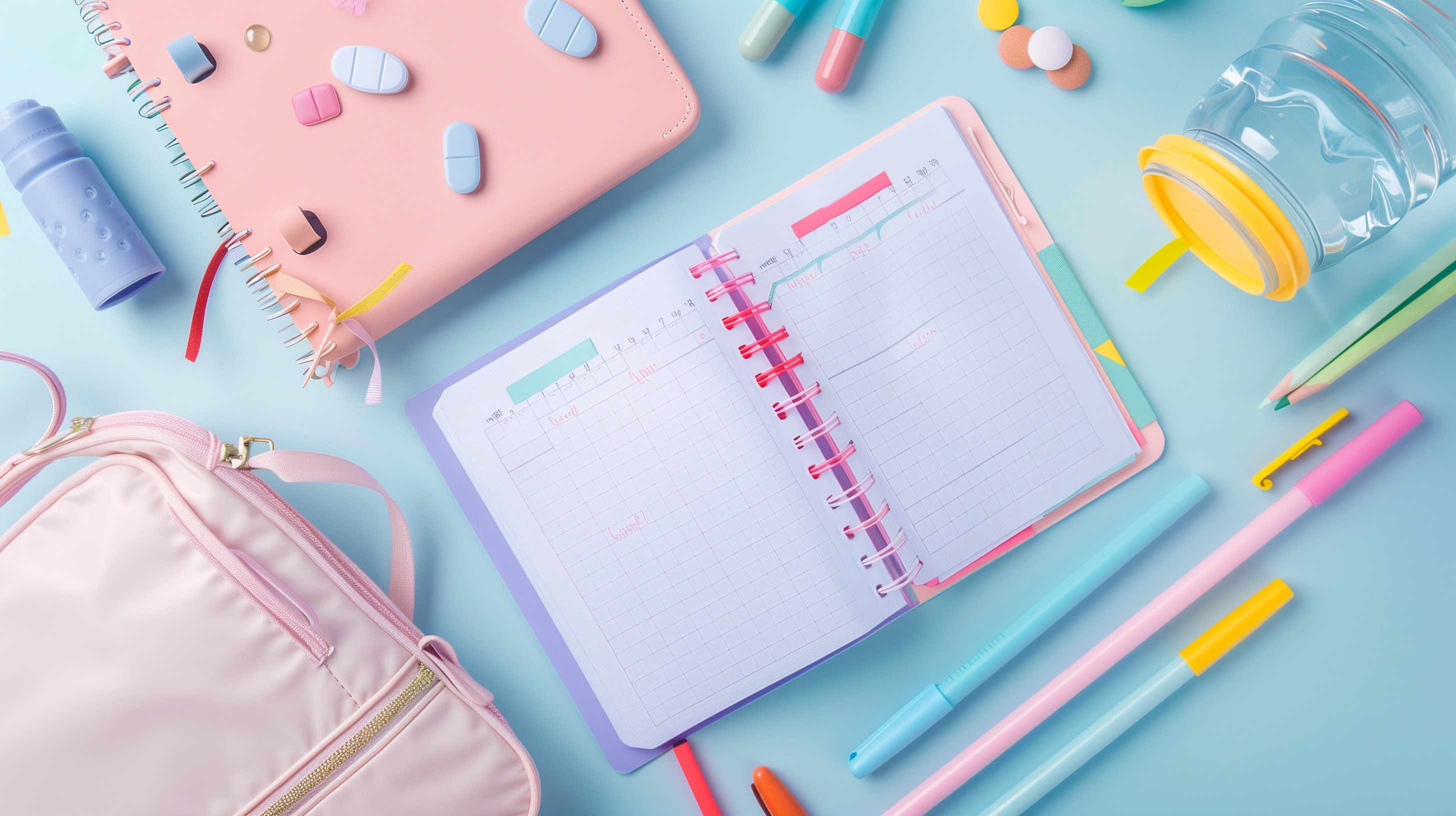Summer's end arrives and with it, that familiar thrill—a new backpack, new notebooks, the promise of a clean slate. But to live with chronic illness (or to watch your child struggle along) in August means August is not preparing for war, it is fighting war.
There is a certain type of tired that is trying to navigate medication schedules with class schedules, or wondering if you'll have the energy to make it through those initial nerve-wracking weeks. Maybe you're working on calculating how many bathroom breaks you'll need, or your teen is stressing about having to explain their condition again to new teachers.
When I was dealing with Crohn's at school, my worst nightmare wasn't pop quizzes—it was that desperate bathroom dash when I was in the middle of a lecture. The stress that came along with not knowing whether I'd be excused, or, better yet, if I'd have to provide a reason why in front of everyone. Those initial talks that I needed? They would have avoided me months of unnecessary stress.
This is what I've found: back-to-school planning when you're chronically ill doesn't equal being entirely together. It equals making flexibility into your planning and leaving yourself plenty of breathing room.
Make a Routine That Bends But Doesn't Break
Inflexible routines with unpredictable symptoms are a bad mix. Instead of trying to make structure where it will not hold, build what I call "flexible anchors"—anchor points that give you structure without confining you.
- Take your medications at the same time every day. Your body is a big fan of this sort of routine, and it is one less thing to stress about when everything else is loopy.
- Eat something at regular intervals—even if it is just a granola bar.
- Stock up on your bad days. Freeze food you can eat during a flare.
- Create a "low-energy day" box of activities, snacks, and soothing items.
For younger students, an IEP or 504 Plan isn’t just paperwork—it’s protection. It guarantees bathroom breaks, medication access, and modified assignments are legally required, not left to chance.
College students—don’t skip disability services. They can arrange note-taking help, attendance flexibility, and deadline adjustments. The earlier you connect, the easier things run when you need accommodations.
Turn Medication Management Into a Non-Issue
There is nothing that ruins a day quicker than finding out you've forgotten your medication. The secret is to streamline your system so that you don't have to think about it.
- Use a sleek pill organizer like the One Day Pill Holder for discreet daily meds.
- For multiple meds, Mini Pill Pouches keep everything sorted and portable.
- Set phone reminders 5 minutes before dose time so you can grab water or privacy.
- Follow the night-before rule: organize meds while your brain is fresh.
Treat Rest Like the Requirement It Is
Rest isn't sloth—it's medicine. Energy is a finite resource. Schedule recovery periods like you would appointments. Pack downtime between classes or after school. A lighter class load now can prevent a flare later.
Lower Your Standards (Seriously)
Perfect is the enemy of good. Frozen vegetables are vegetables. Pre-written assignments are fine. Asking for help is not failure—it’s strategic.
Build Your Tribe
Isolation is real when you're chronically ill. Find your people—online or in person. Even one understanding friend helps make school less lonely.
Pack Smart: Your Chronic Illness Toolkit
Daily Carry Essentials
- One Day Pill Holder – Thin, discreet pill storage. Not just prescriptions but great for pain meds, birth control and more!
- Electrolyte packets – Quick hydration for fatigue and POTS.
- Take Your Meds Tumbler – Hydration plus med-friendly design.
- Portable heat pad – Relief for cramps or pain in class.
- Noise-canceling headphones – Essential for migraines and sensory overload.
- Safe snacks - For when the dining hall doesn't have what you need
- Sanitizer - We are all usually immune compromised, right?
- Portable Charger - Keep our phones charged, which may be our medication/appointment reminders.
- IV Zip Hoodie - for when you are cold in class and need to go from school to infusion or bloodwork. The discrete zippers won't giveaway your after class plans.
- Feel Good Tote - Great lightweight option if normal bookbags feel heavy
- Small comfort item – Stress ball, fidget ring, or essential oil roller for anxiety moments
Dorm Life Game-Changers
- IV Zip Hoodie – Discreet comfort for infusion days away from home
- Infusion Day Blanket – Warmth for treatments and general dorm comfort
- Bedside rolling cart – Keep essentials within arm's reach during low-energy days
- Long charging cables (10+ ft) – Stay connected without leaving bed during flares
- Mini fridge with freezer – Store medications and safe food options
- Clip-on bed lamp – Manage nighttime symptoms without waking roommates
- Quick-prep meals & snacks – Microwaveable, allergy-friendly dining hall alternatives
- Air purifier – Help with allergen sensitivity and dorm air quality
- Organizational bins – Keep medical supplies separate and easily accessible
- Weighted or comfort blanket – Grounding during anxiety or homesickness
- First aid & comfort kit – Pain relievers, electrolyte tablets, condition-specific essentials
- Rest Day Socks – Non-slip and super soft for flare days spent in bed
The Reality Check
Back-to-school will never be easy. There will be days when symptoms hit hard, energy crashes, and deadlines loom. That’s not failure—it’s chronic illness.
Your worth isn’t based on matching healthy people’s pace. It’s about advocating for yourself, prioritizing health, and finding strategies that work for you. Good planning is essential, but so is self-compassion.
Need school essentials designed for chronic illness? Explore BeWell’s collection—from discreet pill organizers to comfort gear that makes your daily grind a little easier.




August's Natural Medicine Cabinet: What Late Summer Foods Can Teach Your Chronic Illness
Back-to-School & the ADA: Know Your Child's Rights (and Reduce Stress)